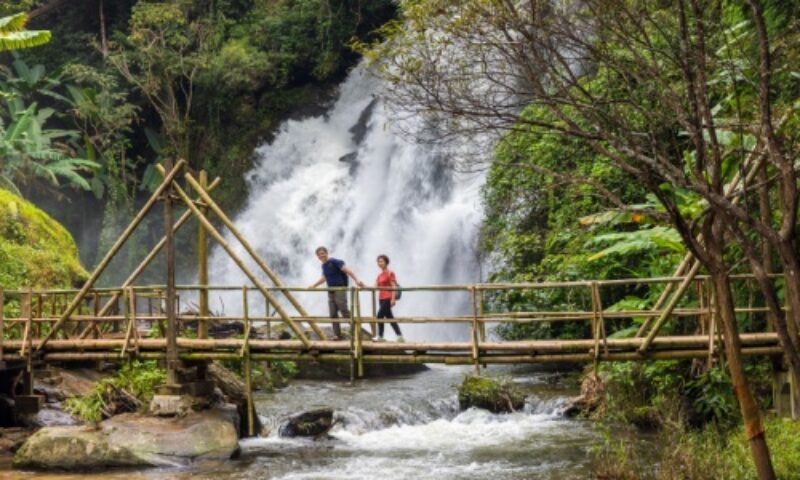As more and more popular destinations introduce tourist taxes, you might be wondering how you can have less of an impact on the local area when you travel.
Travelling sustainably could help you to improve the places you visit, protect the environment, and lead to a more enjoyable experience for you and your loved ones.
Read on to discover how you can travel sustainably and support local communities.
Why should I travel sustainably?
While tourism can generate revenue for a country, it can also lead to a dilution of local culture and overcrowding, all of which can be very frustrating for the locals.
The introduction of schemes such as tourist taxes – small fees usually imposed through accommodation providers and holiday companies – are designed to raise money to counter the ill-effects caused by unsustainable tourism.
Yet, while this money can be used for good causes such as protecting the environment and funding infrastructure, it only fixes the damage rather than preventing the harm caused by overtourism.
Is there anything I should look out for when trying to travel sustainably?
Planning to travel sustainably can be difficult, and there are several common pitfalls you should be aware of. Luckily, a little bit of research can go a long way.
One of the main problems you may face when planning a sustainable holiday is “greenwashing”, which is the term for companies who claim to be eco-friendly or sustainable without having practices in place to deliver on their promises.
These companies hope to entice travellers who may be environmentally conscious without putting any effort into reducing their environmental impact or treating the local people and area fairly.
To avoid companies who are greenwashing, make sure to look for certifications from reputable organisations who can verify these sustainability claims for hotels, tour operators, and other travel-related businesses.
How can I travel sustainably?
1. Support local businesses
Besides from being an incredible way to support the economy of the country you’re visiting, buying from local sellers will also allow you to make your holiday more authentic.
Whether you’re taking home a handmade souvenir, a new item of clothing, or you want to try cooking with some local produce you can’t find at home, supporting independent businesses will benefit the locals.
2. Be environmentally conscious
When booking your trip, try to travel with companies who are conscious of local conservation efforts and treat their local employees well.
It’s important to reduce the impact you have on the environment while travelling as much as possible, especially if you are visiting untouched or fragile ecosystems. Try to leave no trace wherever you travel by not littering or harming the wildlife.
Simple changes, such as avoiding single-use plastics and doing your laundry in bulk, can help to reduce your environmental impact.
3. Dine in independent restaurants
Food is one of the best pleasures of travelling abroad, and the chance to try new dishes is an enticing opportunity that you shouldn’t miss.
However, when choosing somewhere to eat, try to find independent restaurants. Not only are you more likely to experience the authentic flavours of your destination, but you are also putting money into the local community rather than into chain restaurants.
4. Learn about local communities and their culture
Educating yourself about the culture of the area you are travelling to can help you act respectfully when interacting with the local community.
There are several simple ways you can immerse yourself in the culture, such as:
- Learning a few common phrases in the local language
- Staying in one place so you can connect with the locals rather than moving from place to place quickly
- Ensuring to dress appropriately, especially when visiting sacred places like churches or temples.
Interacting with the local culture will help to keep it alive, while also rewarding you with beautiful memories of your travels.
5. Explore destinations off the beaten path
Tourist hotspots – including historic cities, beaches, and iconic landmarks – tend to suffer from overtourism.
Unfortunately, this overcrowding can lead to problems for the locals as well as a disappointing experience for you. Some popular landmarks don’t look the same as they do online, due to large crowds and the damage that comes with hundreds of people visiting every day.
Instead, try exploring little-known locations by travelling off the beaten path. Choosing destinations to visit beyond those on the “top 10” lists will allow you to have a more unique experience, as well as reducing the burden on over-visited areas.
You can find these wonderful destinations by exploring the area yourself or by asking the locals for recommendations.
And if you desperately want to visit a tourist hotspot, you could always try visiting off-season to avoid some of the crowds.

